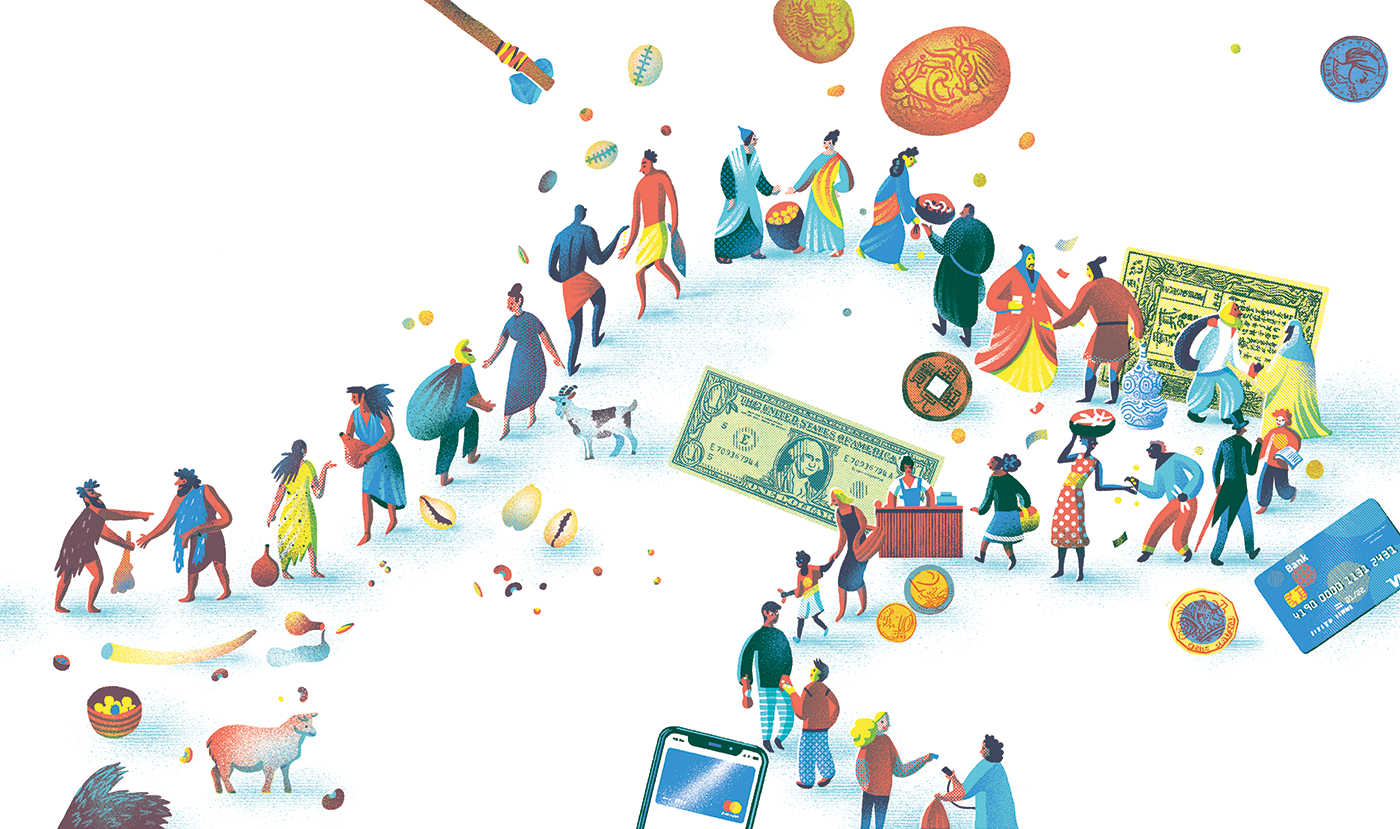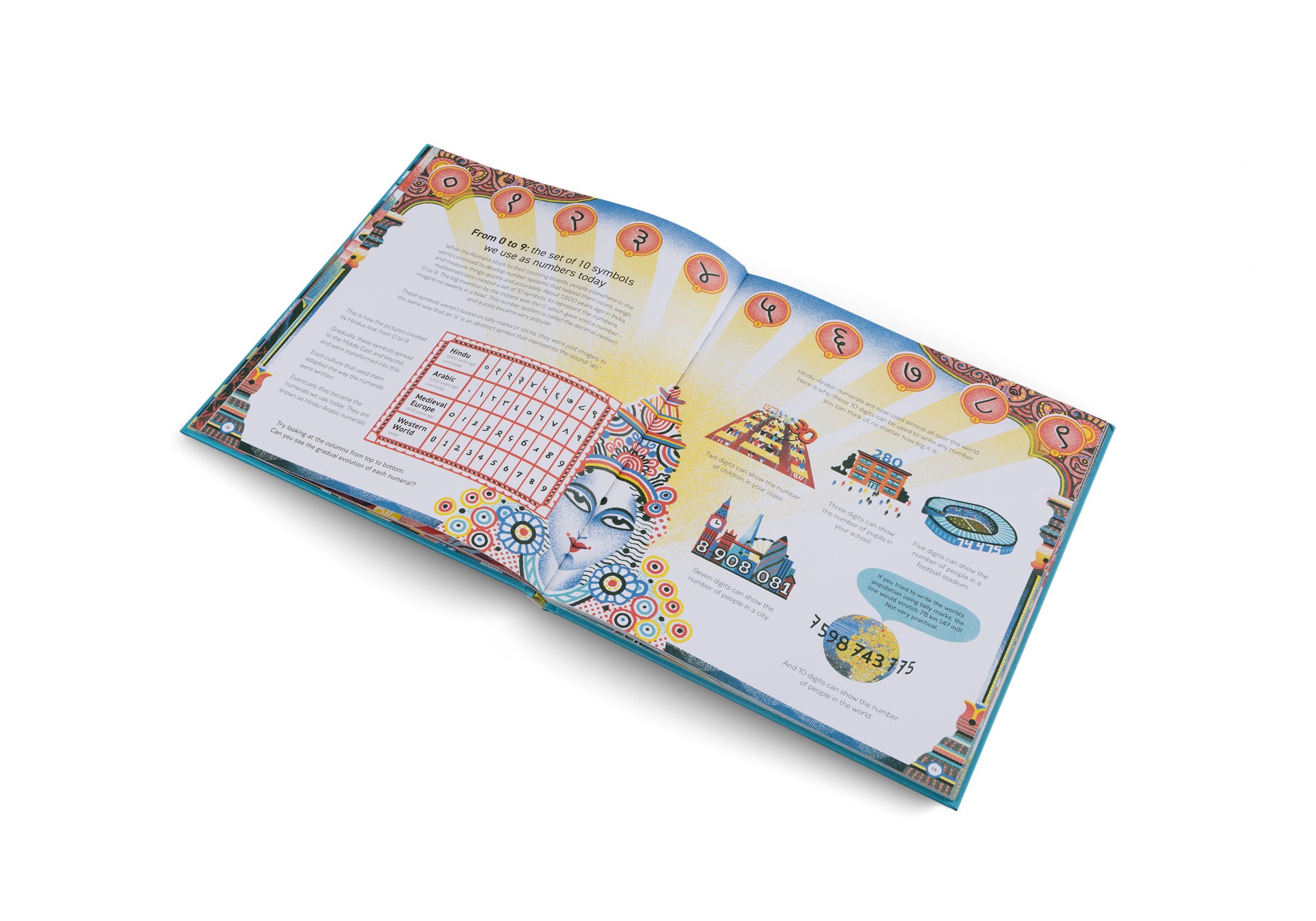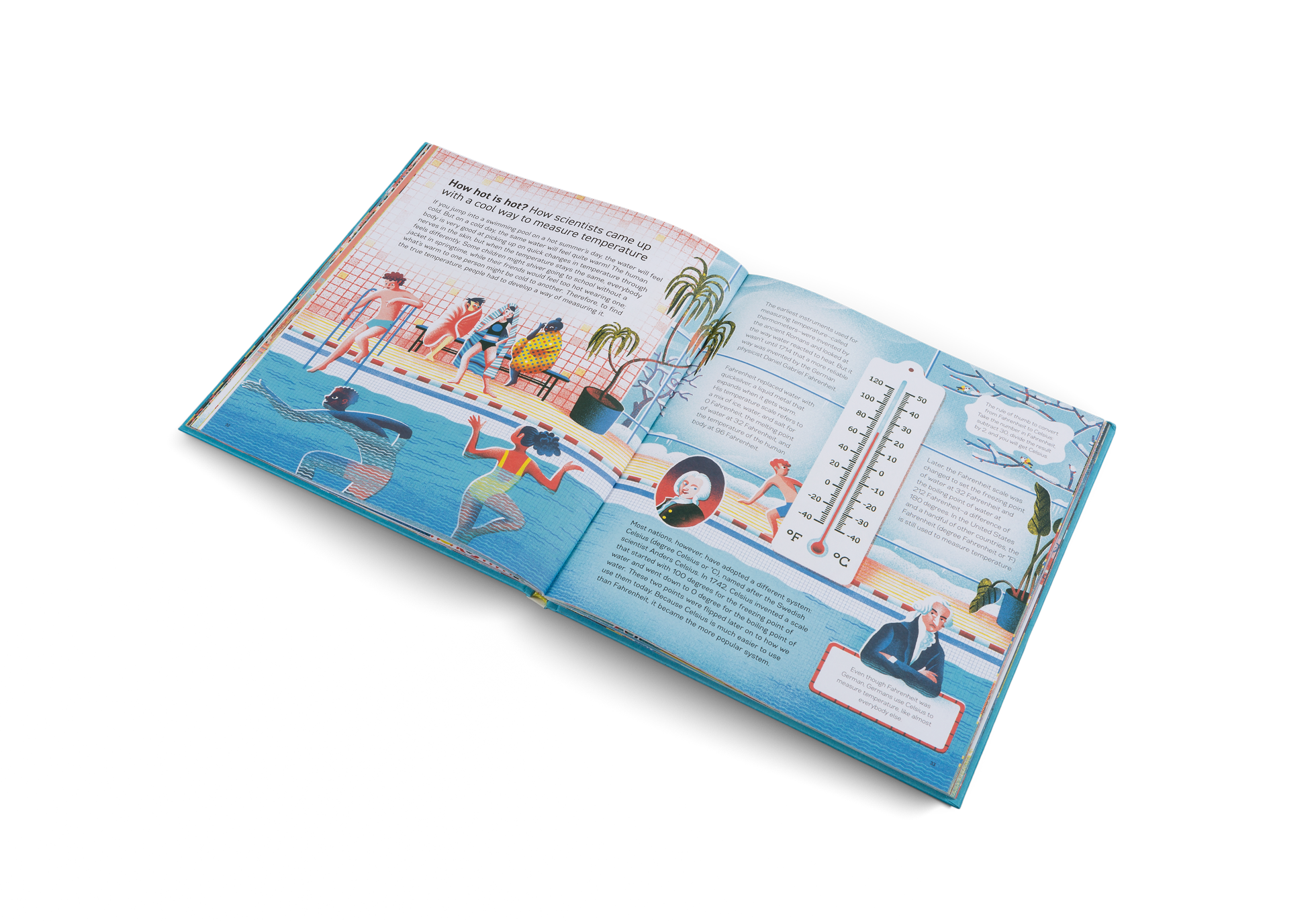
06/2020 Little Gestalten
Numbers help the world go round, a world without them is unimaginable. They are found everywhere and help humanity make sense of life. Without them, much of today would be drastically different. Which begs the question, numbers are one of the most valuable inventions ever.
Sun and summer, night and winter: the origin of time and calendars are numbers. The study of numbers is called mathematics. By revealing the patterns and relationships between numbers, mathematics has enabled us to discover the history of the universe and everything in it, from the birth of giant planets to the behavior of tiny ants. Through our latest Little Gestalten book In Great Numbers, we tell the story of how they came to be. We also meet the original thinkers who invented mathematics and investigate how numbers define so many aspects of our day.

All over the world, people use numbers according to the same basic rules for sums, subtraction, multiplication, and division. They are a common language shared by every nation. In Great Numbers details how they came into life and why they still shape today's world. (Illustration: Daniela Olejníková, In Great Numbers)
By observing the rules and patterns in nature, we have learned to create brand new things, from electricity and artificial light to buildings that brush the clouds, rockets that fly to the Moon, and computers that can do millions of calculations in a split second! Although other mammals use numbers, humans are the only creatures that use numbers in these ways. Foxes don’t celebrate birthdays. Flies don’t count their brothers and sisters.
The rules used and taught in math classes today were conceived hundreds of years ago, sometimes thousands of years ago, by some very clever people. They spent their time studying number patterns, looking at the stars, and investigating the sun and shadows. Solving impossible problems was the name of the game.

The evolution of trading to money to modern contactless cards, numbers define how we interact and daily activities. This new Little Gestalten title introduces children to the fascinating world of numbers and their importance. (Illustration: Daniela Olejníková, In Great Numbers)
In Great Numbers introduces some of the original masters of maths, such as Euclid. He was called the “the father of geometry” around 2,300 years ago. He wrote one of the most important books of all time and which has been taught for 23 centuries—although his findings are very different from the maths of his day. Around the same time, Archimedes also made a name for himself. He famously took a bath and discovered that the water displaced was equal to the volume of his body. He used math to make clever inventions and solve interesting problems, such as working out how many grains of sand it would take to fill the universe. Then there is Hypatia of Alexandria, notably the first female mathematician in history. Around 1,650 years ago, students traveled from far and wide to her talk about math, astronomy, and philosophy.
Through the illustrations of Daniela Olejníková and insight of Isabel Thomas and Raphael Honigstein, the book explores the invention of money and how it shapes today's world. In the early days of humanity and before money, people exchanged goods and services directly with each other. This was called bartering. A Stone Age man might have offered his mammoth-fur coat to someone in exchange for an axe, for example. But bartering wasn’t always possible. Maybe the man with the axe already had a very nice fur coat and needed a new blanket instead?

Showcasing the groundbreaking inventions in numbers that paved the way for today's world, In Great Numbersteaches children about cities, history, the value of numeral language, and how they influence every part of our lives. (Illustration: Daniela Olejníková, In Great Numbers)
An agreement on trade needed to be made to make payments smoother—animals or even grain become widely acceptable. In some places, people used seashells as money. But this was still impractical, because the value of such things changed from place to place, person to person.
This paved the way for the invention of coins from gold or silver so people could exchange for goods and services. The ancient Lydians were one of the first peoples to mint coins, in about 700 BC. A few hundred years later, the Chinese started making money as paper notes. Large sums could be carried more easily that way. Fast-forward to today, coins and paper money you have value because everybody accepts them, just as most people will accept payment by card—the transfer of money in digital form, directly from your bank account to theirs.

This new Little Gestalten favorite features artwork by Daniela Olejníková, text and research from gestalten, Isabel Thomas, and Raphael Honigstein. (Illustration: Daniela Olejníková, In Great Numbers)
Numbers rule economies and educate everyone about the world revolving around us. In a blink of a second, numbers are processing all movements and actions around us. Your brain can process nearly 77 different images seen by your eyes—for example, when you scan a crowd to look for someone you know. In that same second, the world's fastest person Usain Bolt can run 10.4 meters. Hummingbirds have been known to flap their wings more than 70 times per second, while their hearts can beat up to 21 times.
In that space of a second, the Earth travels 30km (18mi) while orbiting the Sun. The International Space Station travels 8km (5mi) in its orbit around the Earth. Light from the Sun travels about 300,000km a second, to put that into perspective, that is almost the distance between Earth to the Moon. While the world’s fastest computer performs 143 quadrillion calculations. Numbers shaped our history and continue to teach us about the world we live in today, whilst also making bold predictions for the future. The invention of numbers has played an enormous role in today’s world. They help us make sense of life, and in many ways allow us to understand why the world goes round.
Discover a world of numbers and teach young minds about their role in society. Available in German and English.













